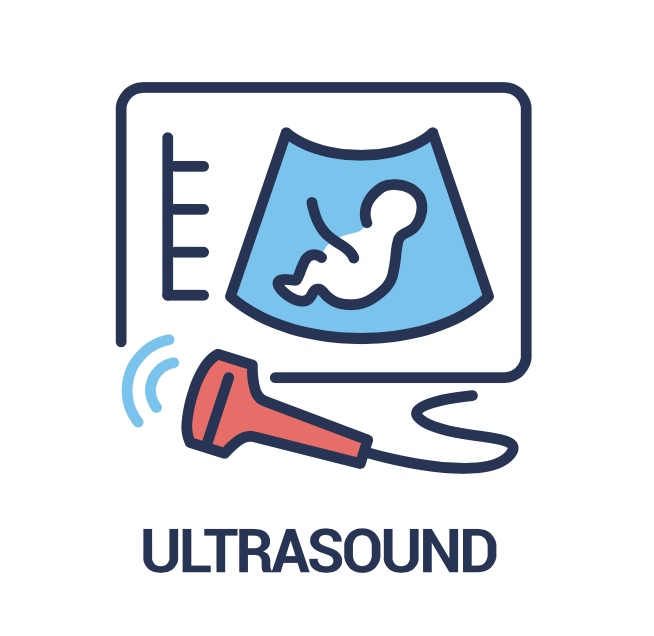Over the past decade, it’s been a joy to see how many more dyslexic university students and professors are sharing how they tackle one of the most difficult tasks in education: writing an essay. The mechanics of writing are difficult, for sure, but for many, the volume of ideas and a need to organize and prioritize them is an equally difficult task. Here are two videos from Jemima Hutton, a medical student from Australia. She shares why she prefers mind-mapping to outlining (outlining is too restrictive) and how she enjoys getting her associated ideas down on paper. In the second video, Jemima talks about how she uses software to scaffold her writing. She uses Claro Writing Helper, but now there are other software similar to […]
Dyslexia, Art, and Science [Premium]
“Artists and scientists are curious creatures always looking for patterns…. And that’s because patterns communicate larger insights about the world around us.” — Rebecca Kamen Many dyslexic people work in fields that involve science, technology, engineering, mathematics, and art, and those career choices may be due to personal characteristics like curiosity as well as cognitive strengths involving analytical ability, creative problem solving, visualization, and hands-on problem solving. In our survey of careers of dyslexic adults in our network (please fill out here if you haven’t already), out of 106 people who answered, 42 had careers in science, technology, medicine, engineering, or the visual arts. That’s almost 40% in STEAM (science, technology, engineering, art, math) professions! If that is so, is our education preparing students for […]
Dyslexic Cognition and Processing Speed [Premium]
Processing speed can be a very frustrating aspect of dyslexia and dyspraxia. It doesn’t have its own DSM diagnosis code and in truth, processing speed in the context of dyslexia and or dyspraxia have very different sources. Some people think that it doesn’t matter what the source of the speed problems are, but I think it’s more important than people realize. Most people in the dyslexia field don’t have the experience of being a neurologist – but it’s a pity that more people haven’t had those experiences. If you have assessed people throughout the life cycle (kids through adults) and in the setting of disease (like brain injury) or learning difference (like dyslexia), there are dramatic differences that affect learning and communication. Common issues that […]
You Think in Words; I Think in Pictures [Premium]
“…when I was a kid, my mother had often asked my father, ‘What are you thinking?’ He’d shrug and say, ‘Nothing’ — a response that irritated her to no end. (‘How can he be thinking about nothing?’ she’d ask me.) I’ve always been on Team Dad; I spend a lot of time thoughtless, just living life. At the same time, whenever I speak, ideas condense out of the mental cloud. It was happening even then, as I talked with my friend: I was articulating thoughts that had been unspecified yet present in my mind. My head isn’t entirely word-free; like many people, I occasionally talk to myself in an inner monologue. (Remember the milk! Ten more reps!) On the whole, though, silence reigns. Blankness, too: […]
Stealth or Compensated Dyslexia [Premium]
There are a variety of terms used to described individuals with dyslexia who have challenges decoding text but then evolve over time to those who can read silently with good compensation. These people can succeed in the highest levels of education and work, but still have non-reading-related challenges (for instance spelling and writing fluency, tip of the tongue word retrieval issues) that persist. We coined the term stealth dyslexia some years ago because in this setting dyslexia could fly under the radar of detection, but others have used terms like compensated or resilient dyslexia to characterize many of these individuals. IS THIS THE GOAL? If you have a student who is still in the throes of learning effective decoding, getting to the the compensated or […]
Your “Mini-Me” and Bullying [Premium]
English singer-songwriter Robbie Williams recently shared that he was saddened after learning that his 10-year old daughter who is like a “mini-me”, dyslexic also with musical abilities, was rejected by a friend who decided she didn’t want anything to do with her after learning that she was dyslexic. “I tried to make it clear to her that sometimes you just have to let other people go, that you should let them go – but without sacrificing your self-esteem in the process…This girl did not deserve her love and friendship…I speak from experience.” Because many adults today discover that they are dyslexic only after their children are identified in school, this reliving the school and social-emotional stresses as their own children try to navigate their lives […]
Where Classroom Reading Fluency Practice Can Go Wrong
Reading fluency is defined as an ability to read texts with accuracy, a good rate, and good expression (sometimes the latter two are referred to as automaticity and prosody). Strong reading fluency is a goal that all children should have on their path to becoming...
New Ways to Hack Learning [Premium]
Almost every structured literacy program uses letter tiles and flashcards. The reason for this is that there are so many word parts and whole words to learn and the use of tiles and cards can give students visual support as they focus on various letters, letter groups, and their sounds while building up reading fluency. Some students may have difficulty learning with tiles and cards if the lessons or demonstrations proceed too quickly, or if working memory is easily overloaded or motor challenges make hands-on activities more difficult than less kinesthetic ones. Activities like word sorts may also provide a little physical activity that help students stay alert and engaged whereas more passive study may have them drifting off. For college kids and adults, flashcards […]
Florence Welch + The Machine Singer-Songwriter [Premium]
“Being a creative person and getting older, and wiser, has been an awakening. The older I get, the more self-assured I feel and the more confident I feel in my work and in life.” — Florence Welch Florence Welch is an English singer-songwriter who writes and sings songs that are steeped in folklore and fantasy imagery. She has spoken both about her dyslexia and dyspraxia in various interviews. Florence became a pop star at the age of 21 when she was discovered singing in a club bathroom. She would go on to have Grammy nominations and platinum records, but also had some tumultuous times with heartbreak. One of her breakthrough songs was Ship to Wreck (lyrics), after the breakup of a long term relationship. […]
In Memoriam: Beryl Bennaceraf, Ultrasound Pioneer
"What helped me was realizing that there was silver living, that it wasn't all negative....in radiology... pictures just speak to me. I can look at a picture and I can see the pattern. I can see things that nobody else can see." — Beryl Bennaceraf, MD With great...
Question: Keeping Up with Wilson at School [Premium]
Question: I have a third grade student who attends a school that used Wilson Fundations in the earlier grades. The problem is that even though my daughter did some summer work, she’s been having trouble keeping up. She’s dropped down a level from her peers so that she’s just repeating what she had been taught before. There is less stress in the lower group, but would changing her to a different curriculum be a better option? Answer: This is a difficult question to answer specifically. Ideally, someone who really knows your student could give you specific guidance on whether repetition or a new curriculum might be a better move. The Wilson Fundations program is designed for general education classrooms. It (as well as other programs […]
Nature Journaling with John Muir Laws
"I notice, I wonder, it reminds me of" are powerful prompts that lead you to observe more deeply, ask better questions, and make interesting connections." — John (Jack) Muir Laws This is a great time to get outdoors and draw. Even if you're a backyard nature...

![Writing An Essay — How They Do It [Premium]](https://www.dyslexicadvantage.org/wp-content/uploads/2023/02/Writing-an-Essay-400x250.png)
![Dyslexia, Art, and Science [Premium]](https://www.dyslexicadvantage.org/wp-content/uploads/2023/03/Dyslexia-Art-and-Science-400x250.png)
![Dyslexic Cognition and Processing Speed [Premium]](https://www.dyslexicadvantage.org/wp-content/uploads/2023/02/Dyslexia-Cognition-and-Processing-Speed-Dyslexic-Advantage-400x250.png)
![You Think in Words; I Think in Pictures [Premium]](https://www.dyslexicadvantage.org/wp-content/uploads/2023/02/Screen-Shot-2023-02-16-at-12.28.43-PM-400x250.png)
![Stealth or Compensated Dyslexia [Premium]](https://www.dyslexicadvantage.org/wp-content/uploads/2023/02/Stealth-or-Compensated-Dyslexia-1-400x250.jpg)
![Your “Mini-Me” and Bullying [Premium]](https://www.dyslexicadvantage.org/wp-content/uploads/2023/02/Your-Mini-Me-and-Bullying-400x250.png)

![New Ways to Hack Learning [Premium]](https://www.dyslexicadvantage.org/wp-content/uploads/2023/01/New-Ways-to-Hack-Learning-Dyslexic-Advantage-1.png)
![Florence Welch + The Machine Singer-Songwriter [Premium]](https://www.dyslexicadvantage.org/wp-content/uploads/2022/12/Florence-Welch-Dyslexic-Advantage.jpg)

![Question: Keeping Up with Wilson at School [Premium]](https://www.dyslexicadvantage.org/wp-content/uploads/2022/12/Question-Keeping-Up-with-Wilson-at-School.png)














